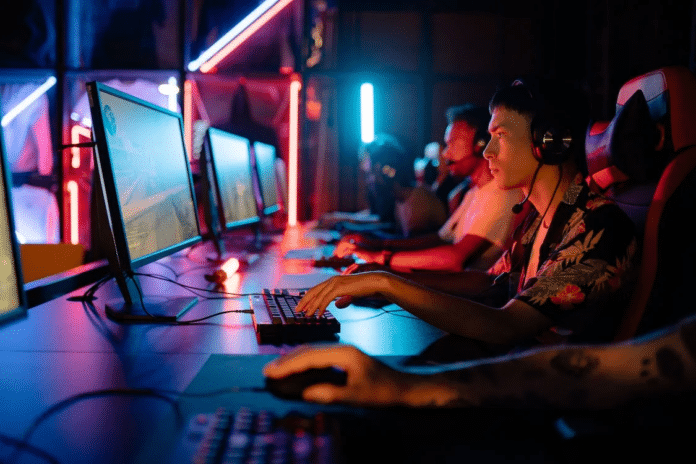Esports was born from people’s passion for various traditional sports, such as football, basketball, American football, baseball, tennis, and more. If you are unfamiliar with esports, it is a shortened name for electronic sports, an umbrella term for competitive sports-inspired video games. However, it isn’t restricted to tournaments and competitions, as it can relate to first-person shooting games, real-time strategy games, fighting games, racing games, and more.
Despite targeting the same audience and sharing many similarities, traditional sports and esports differ from each other in significant ways while offering the same appeal to fans worldwide. Here is a rundown of the similarities, contrasts, and crossovers of esports vs. traditional sports.
The Similarities
It might surprise you that esports can place a similar mental demand on its professional athletes. For amateur or professional gamers to beat the competition, they must overcome anxiety, improve their focus, boost their confidence, and move on from a loss, just like a traditional athlete. It doesn’t matter if a fan’s favorite team loses a game, an athlete misses a goal on a pitch, or a gamer fails to hit a home run, they will each need to pick themselves up, dust themselves off, and try again.
Also, many people make the mistake of believing esports are quite insular, but this couldn’t be further from the truth. It almost mirrors playing the likes of traditional football, rugby, or baseball, as many young people often use esports to improve their social skills, make friends, and maintain relationships.

For instance, they might form friendships online or in person due to a shared passion for one or more games, which may lead to fun gaming sessions, exciting match days at a stadium, and greater emotional security. Guaranteed the best of friends would happily argue for hours about the best mlb bets today or a virtual or real footballer’s performance on a pitch, which could help them build a stronger rapport and a thicker skin.
Traditional athletes aren’t the only people at risk of a sports-related injury, as esports fans could develop a physical issue due to extensive gameplay. You might believe it isn’t a sports-prone activity, but novice and professional gamers are likely to develop a hand or wrist injury. Also, they might need to keep themselves in good shape and improve their posture to avoid injuries to their back and muscles.
Contrasts
The most obvious contrast is that traditional sports are often played in person at a sports venue, such as a pitch, court, or field. Despite the rise of video assistant referees and broadcasting, most traditional sports don’t rely on technology to play a game for an audience. Yet, esports is one industry that benefits from new technologies for improved gameplay and a more immersive experience.
Another noticeable difference between traditional sports and esports is the ability to get involved in the activities. Unfortunately, many fans of traditional sports might find it hard or intimidating to join a team or secure tickets to an upcoming match. On the other hand, esports only requires a person to own a TV and games console, a mobile phone, or a computer to join a game and embrace their favorite sport. Also, they can play a game at any time or location.
Crossovers
Traditional sports and esports often share the same audience. For example, football fans are more likely to pick up a controller to play a game of FIFA, as it will allow them to become their favorite club, such as Liverpool, Barcelona, or Bayern Munich. As a result, esports allows traditional football fans to feel a part of a large and loyal community, which will increase their passion and interest in the game played on and offline.
In addition to sharing the same community, many esports games tend to feature the same players and teams featured in traditional sports, such as the Boston Red Sox, Manchester City, or Chicago Bulls. Also, they often follow the same rules of a specific game to avoid confusion, boost enjoyment, and support gameplay.


